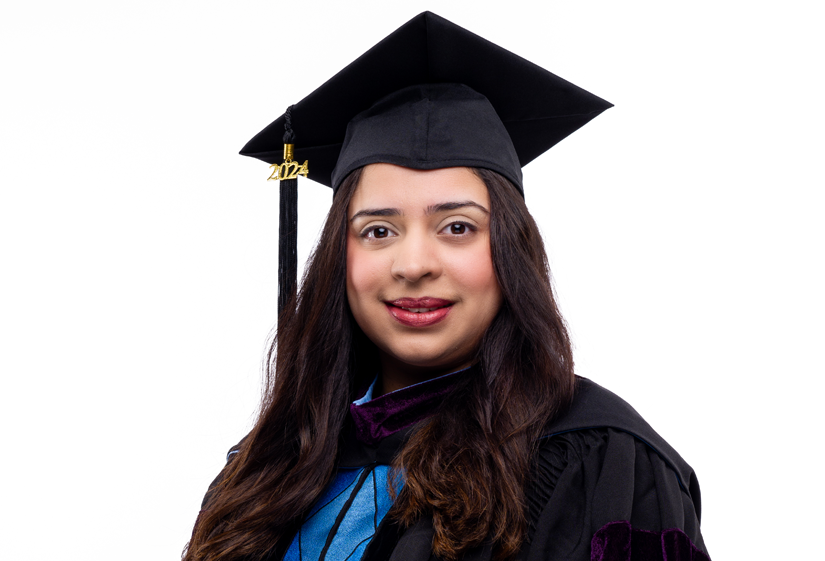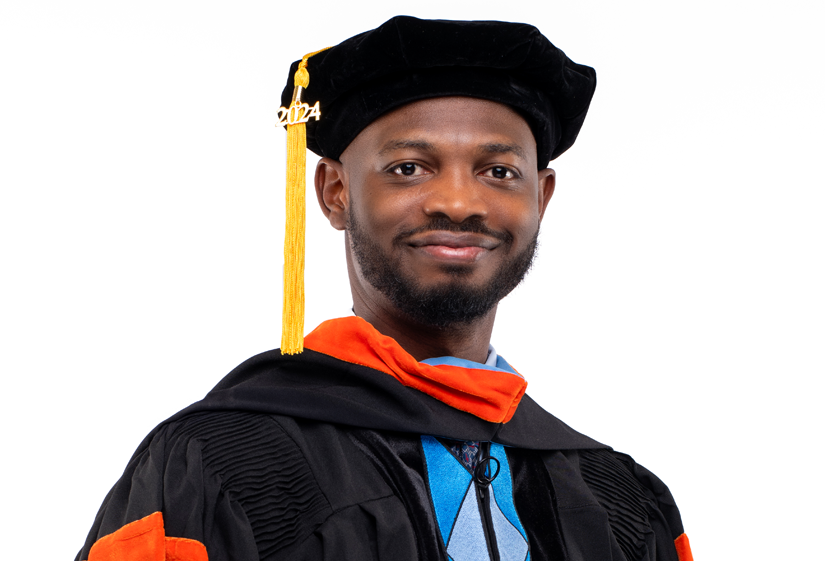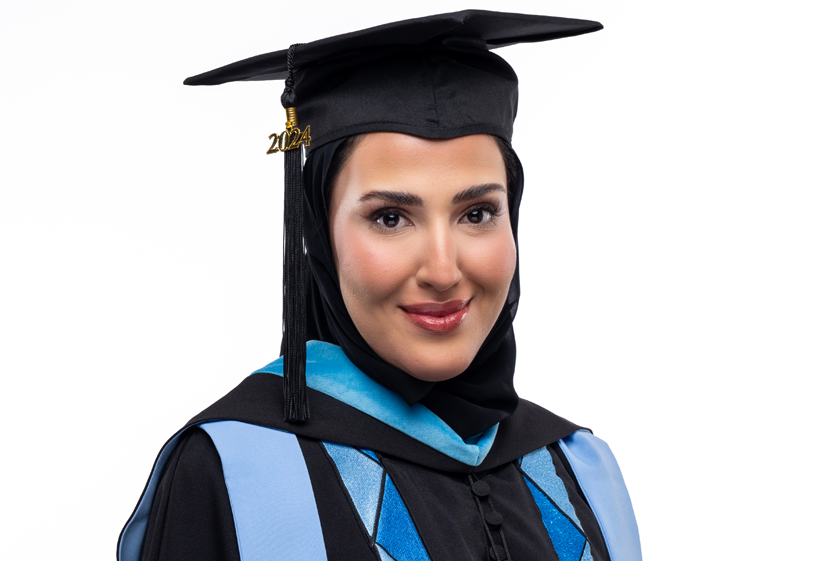Graduates’ innate desire to help others motivates them to pursue positive change via scientific or societal advancement

With the world currently facing multiple crises spanning from the geopolitical to the environmental, graduates from Hamad Bin Khalifa University’s (HBKU) Class of 2024 are collectively working to sustain the global community’s faith in peace and humanity.
Sharing a personal determination to save lives, restore human dignity, and facilitate dialogue and mutual understanding where it is needed most, the graduates committed themselves to studying fields that align with HBKU’s five focus areas: Precision Health, Artificial Intelligence, Progressive Education, Sustainability, and Social Progress. They each sought to benefit vulnerable individuals, reduce suffering, and uphold societal values by engaging in disciplines as varied as cultural diplomacy, food and water security, and healthcare.
Ayesha Bashir, a graduate from the College of Law’s Juris Doctor program, wishes to aid vulnerable individuals in her native Pakistan and beyond through her research on energy ethics and equitable healthcare.
Her research project outlined a visionary pathway for the employment of AI in healthcare that benefits underprivileged and underserved communities, which featured recommendations for tailored capacity-building programs and a legal framework that protects the rights and dignity of individuals. Outlining the ambitious nature of her project, Bashir said: “AI and telehealth can be highly effective in war-torn areas by providing accessible, personalized healthcare services and support, even in the absence of physical healthcare infrastructure and amidst challenging conditions.”
Bashir hopes to contribute to more inclusive policy and legal frameworks that promote sustainable development and ensure equitable access to resources utilizing the knowledge she acquired throughout her master’s studies. Underlining the benefits of her HBKU education, Bashir said: “The diversity within the College of Law’s faculty encompasses a wealth of legal traditions, experiences, and cultural perspectives. As I graduate, I am not only equipped to compare and contrast situations back home with those across the world, but also to use these insights to craft tailored, impactful solutions for my community.”
 Ojima Zechariah Wada, a graduate from the College of Science and Engineering’s PhD in Sustainable Environment program, sought to address challenges posed by food insecurity, water scarcity, and unsustainable agricultural practices in his home country of Nigeria and abroad.
Ojima Zechariah Wada, a graduate from the College of Science and Engineering’s PhD in Sustainable Environment program, sought to address challenges posed by food insecurity, water scarcity, and unsustainable agricultural practices in his home country of Nigeria and abroad.
Wada centered his research project on the study of Purple Non-Sulfur Bacteria (PNSB) - a group of bacteria that uses organic compounds as a carbon source and sunlight as an energy source - and its potential usage in wastewater treatment. His project analyzed PNSB’s ability to treat wastewater and upcycle pollutants into valuable products, such as a sustainable protein source that could replace the need for conventional animal feed.
Highlighting the promise of his project, Wada said: “In a successful aquaculture trial with shrimp, the project demonstrated that PNSB-derived biomass could serve as an effective alternative to conventional aquafeed. Aside from underlining this biotechnology’s potential to make food supply chains worldwide even more sustainable, the biomass exhibited promising biofertilizer and biofuel characteristics, showcasing its potential in exciting applications.”
 Shareefa Darwish, a graduate of the College of Islamic Studies’ Master of Science in Islamic Art, Architecture and Urbanism program, aims to contribute to positive dialogue through cultural diplomacy in Qatar and beyond.
Shareefa Darwish, a graduate of the College of Islamic Studies’ Master of Science in Islamic Art, Architecture and Urbanism program, aims to contribute to positive dialogue through cultural diplomacy in Qatar and beyond.
Darwish’s research examined the transformative narrative within Nasrid art and architecture during the 14th century CE, in Granada, Spain. Her investigation sheds light on how certain architectural monuments and institutions fostered societal advancement and scholarly exchange, which also included the construction of significant monuments such as the Alhambra, the Madrasa Yusufiyya, and the Maristan of Granada.
Underlining the importance of this research in today’s context, Darwish said: “Art has a transformative power and a capacity to transcend boundaries and communicate across cultures and languages. History offers invaluable lessons on how these initiatives combined with contemporary education efforts can promote peace and humanity across Islamic communities and the wider world.”
All the graduates undertook multidisciplinary programs designed to prepare them to be leaders that facilitate economic, social, and technological development that benefits the people around them. HBKU’s unique learning environment underpins their education by giving them opportunities to refine their capabilities to operate in these fields and shape novel solutions that bring a positive impact to the world.





